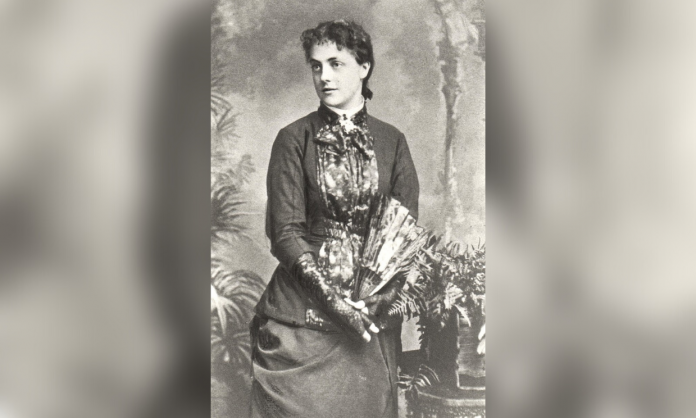By Aileen Atcheson
Jane O’Toole was born in Wicklow in 1858. Her home had been a safe house for Fenians and her brothers had taken part in the Fenian Rising in 1867. In 1881 she joined the Ladies Land League and was a visitor to Kilmainham Jail and other jails. She took books to the imprisoned and became a regular visitor to Parnell during his imprisonment in 1881-1882.
She helped compile the Register of Evictions and helped organise the Land League in Wicklow and Carlow. On the executive of the Land League when it was disbanded, she remained a Parnell supporter all her life. After his death in 1892 she had a selection of his speeches published and looked after his grave.
Jennie married John Wyse Power, a member of the IRB and a founder member of the GAA. They had four children. The first little girl died, three others survived. Jennie was involved in the women’s franchise movement and supported Anna Haslem’s Dublin Suffrage Association. She became a founder member of the Irish Women’s Franchise League. In 1900, Queen Victoria visited Ireland.
A party was organised for children in Dublin. Jennie was on the committee which organised a boycott of this party and helped organise a Patriotic children’s treat for those children who did not attend the British organised party. A Poor Law Guardian, founder member of Inion nah Éireann she became a member and Vice President of Sinn Féin.
She and her husband opened the Irish Farm Produce Company, a shop and restaurant in Henry Street, Dublin. This became a regular meeting place for political activists and Irish language enthusiasts. Eventually she had three other branches of her shop in the city. On the provisional committee for setting up Cumann na mBan, the 1916 Proclamation was finished in her house.
During the Rising she provided meals for the insurgents until her premises in Henry Street was burned down. Later that year, her daughter Maura died suddenly. After the Rising she and another daughter, Nancy, were active in providing support for the prisoners’ dependents. In de Valera’s absence in America she chaired Sinn Féin meetings. She was elected to Dublin Corporation.
Cumann na mBan opposed the Treaty. Jennie, though on the executive, supported it. She thought it was a steppingstone to an Irish Republic but was to be disillusioned. In 1923 she was made President of Cumann na Saoirse, the pro-Treaty organisation. In 1923 she became one of the commissioners appointed to govern Dublin city.
Jennie Wyse Power joined Cumann na nGael, the pro-Treaty party. She soon became disillusioned with their policies and attended her last meeting in 1925. Her decision to leave the party was her disagreement with their treatment of prisoners during the Civil War. She also resented their policy regarding the Boundary Commission and the Northern Ireland question.
Jennie’s husband died in 1926. She deemed the Senate a failed institution though she joined Fianna Fail having remained on good terms with de Valera all the years. In 1929 she closed her business and retired from public life and from politics in 1936. She was seventy-eight when she died in 1941. Most of her life was spent trying to be of use to the country but she must have felt disillusioned at the end of her life when she viewed how the country had developed.
Her life was spent in service of the country though she is nearly forgotten about now.








